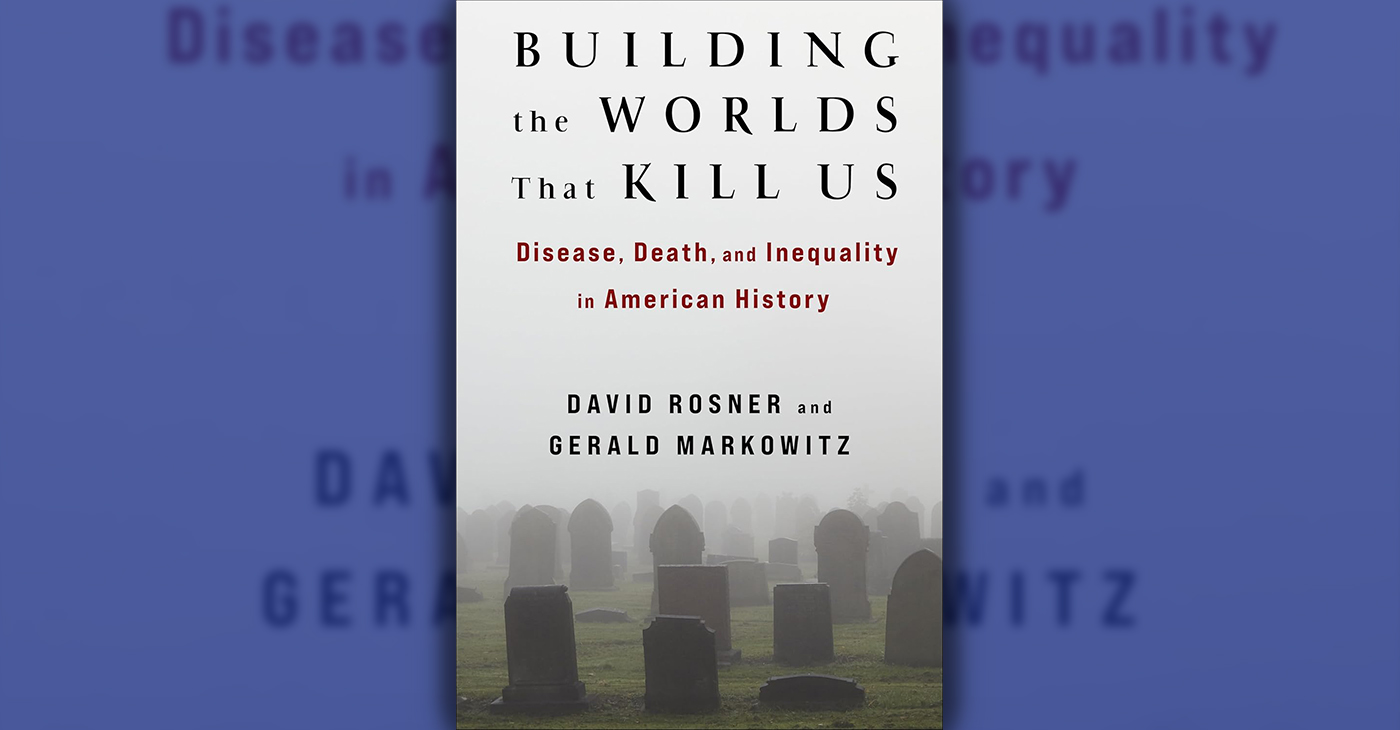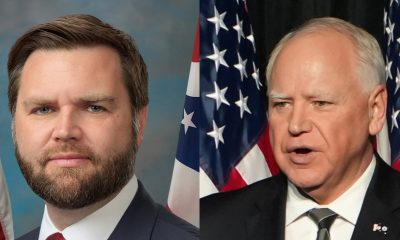Business
Black Business Spotlight: Body Love
MINNESOTA SPOKESMAN-RECORDER — The most successful businesses tend to solve a problem. Sabrina Jones’ problem was eczema and dry, over-sensitive skin. Her solution: Body Love Products. Unable to wear products with fragrances, Jones created her own line of bath and body products incorporating aromatherapy, pure essential oils, and all-natural ingredients.
Through friends and family, word gets out
The most successful businesses tend to solve a problem. Sabrina Jones’ problem was eczema and dry, over-sensitive skin. Her solution: Body Love Products.

Sabrina Jones (Photo by: Desiree L. Wells)
Unable to wear products with fragrances, Jones created her own line of bath and body products incorporating aromatherapy, pure essential oils, and all-natural ingredients.
For 20 years, she has worked in child protection and training, which she said also informs her creations. “I work in a very stressful environment,” said Jones. “How can I combine two things that can help me and deal with not only the wellness of my skin, but also [serve] as a mood stabilizer?”
We chat here with this rising entrepreneur about her skin and wellness line and goals for growth and longevity.
MSR: What is Body Love?
Sabrina Jones: I provide unique aromatherapy, wellness, and stress relief solutions for your skin. I handcraft a variety of aromatherapy body butters, hair and facial treatments, products and accessories [for] those that suffer from dry skin, inflammation, blemishes.
MSR: What inspired you?
SJ: I just wanted to be able to have something that anyone could use — from an infant to someone in their 90s — anyone dealing with acne or inflammation, or just wanting a product that can help stabilize their mood, hence the aromatherapy piece.
When I became pregnant with my first child, that pushed me forward in really creating my product.
MSR: How did you figure out how to mix this stuff up?
SJ: I’ve always been a creative person. It’s really working around your scents, so I just get different scents together that I would like and play around with it. That’s the fun part. I work with shea butter, and I break that down, and then I just start mixing.
MSR: What’s your top-selling product?
JS: It’s my body butters. I have eight different fragrances, and my body butters are multi-use, so you’re able to use them on your hair, your face, your body. Within the body butters, Daydream is my number-one seller. It’s like a light, sweet scent [mixed] with sweet orange and lemon with melon and other ingredients for the skin, like tea tree oil and jojoba.
Second is my facial foam wash. It helps with blemishes, acne, razor bumps, pimples. And most of my customers are able to see a difference within a week. I have a lot of testimonials based off of that, and I am working to get a patent [on the formula].
MSR: How did you know this could be a business?
JS: Well, I would not be here and my company would not have grown over four years without word-of-mouth referrals, because this truly started out as a hobby for me. And then the word started to get out.
MSR: How does your business impact the community?
JS: With friends and family and referrals coming through, I started to see how it was positively impacting others and in the community. I started getting invited to different events in the community, like popups, events on wellness and health, as well as to talk about aromatherapy and how it can help as an alternative, or a supplement, to over-the-counter medicines. I love that educational piece to it.
I also donate some of my proceeds to organizations within child welfare that provide programming for youth.
MSR: What has been the most rewarding part of owning your business?
JS: The community response! Businesses grow with consumer support. I support my business capitally, but it’s because of the consumers why I’m doing it. With the demand and the increasing partnerships that I’m having with other businesses, it’s become a point of pride.
MSR: Tell us about the partnerships.
JS: I have some local business partnerships [where you can purchase my products]. One is Heimies Haberdashery in Saint Paul. They carry my aromatherapy balls. Privileged Barber Lounge in Saint Paul, as well. And then I have a new partnership with Andros Med Spa in Mendota Heights. We have a launch on July 16th. Those are places locally that have also supported me in my growth. I’m also at Market at Macy’s at Lenox Square Mall in Atlanta. I’m there until August.
MSR: What has been the biggest challenge?
JS: Stepping up my game as far as making our products more accessible and becoming more visible. Yes, I’m in Minnesota, locally known; I want to be nationally, if not internationally, known. So really [it’s about] figuring out that you have this masterpiece and how do you get others to be able to learn about it as well.
And then too, with any business it’s [about] capital, because I fund my own business and I’m a mom, I’m a wife, have my home life, and then I have my business. So, it’s how to keep things going without going under and not stretching yourself so thin that there’s no sustainability. I’m still trying to figure that out.
MSR: What does success look like for you?
JS: I think the short-term success is obviously sales — not in the form of profit, but in the form of somebody taking a step towards their own self-care and wellness. When they purchase one of my products, I see that as success because they’re taking control of that for themselves. It means to me that I didn’t do this in vain.
MSR: And long-term success?
JS: Legacy. Eventually, I want to be able to solely work for myself and create a sustainable business that my son can take over, or I shall I say my grandkids can take over.
MSR readers can use coupon code Love Yourself receive $5 off $25 purchase.
For more info, including local locations, visit bodyloveproducts.com.
This article originally appeared in the Minnesota Spokesman-Recorder.
Activism
Oakland’s Black Chamber of Commerce Awards 63 Businesses $1,000 Micro Grants
“Our members are essential to Oakland’s economic and cultural fabric,” said Cathy Adams, president of the OAACC. “These grants are a testament to our dedication to fostering business growth and sustainability within our community.” The microgrants are designed to provide vital support for members to strengthen their operations, invest in growth opportunities, or meet pressing needs, Adams added.

By Oakland Post Staff
Last week, the Oakland African American Chamber of Commerce (OAACC) announced the distribution of $63,000 in microgrants to 63 member businesses. These $1,000 grants, generously sponsored by Supervisor Nate Miley, Amazon, and the Tides Foundation, reflect the organization’s goals and unwavering commitment to empowering Black-owned businesses in Oakland.
“Our members are essential to Oakland’s economic and cultural fabric,” said Cathy Adams, president of the OAACC. “These grants are a testament to our dedication to fostering business growth and sustainability within our community.”
The microgrants are designed to provide vital support for members to strengthen their operations, invest in growth opportunities, or meet pressing needs, Adams added.
As part of this initiative, OAACC leaders are encouraging all grant recipients to inspire their communities to support Oakland-based businesses by shopping locally, sharing referrals, and following their social media pages.
For more information about the OAACC and the organization’s initiatives, please visit www.oaacc.org.
Activism
Port of Oakland to Host January Meeting for Interfaith Council of Alameda County
State, county, and city officials have been invited to join ICAC board members and the community to explore effective strategies for addressing these interconnected challenges across Alameda County, including ICAC’s Safe Car Park program expansion and efforts to convert trailers into shelter for the unhoused.

Special to The Post
The Interfaith Council of Alameda County (ICAC) will hold its first meeting of 2025 on Thursday, Jan. 9, at the Port of Oakland, located at 530 Water St. Hosted by the president of the Port of Oakland, the meeting will run from 1-2:30 p.m. and will focus on pressing community issues including environmental justice, housing solutions, and crime and safety.
State, county, and city officials have been invited to join ICAC board members and the community to explore effective strategies for addressing these interconnected challenges across Alameda County, including ICAC’s Safe Car Park program expansion and efforts to convert trailers into shelter for the unhoused.
All are welcome and encouraged to attend and contribute to this important discussion. For more information, visit interfaithAC.org.
Arts and Culture
Book Review: Building the Worlds That Kill Us: Disease, Death, and Inequality in American History
Nearly five years ago, while interviewing residents along the Mississippi River in Louisiana for a book they were writing, authors Rosner and Markowitz learned that they’d caused a little brouhaha. Large corporations in the area, ones that the residents of “a small, largely African American community” had battled over air and soil contamination and illness, didn’t want any more “’agitators’” poking around. They’d asked a state trooper to see if the authors were going to cause trouble.

By Terri Schlichenmeyer
Author: David Rosner and Gerald Markowitz, c.2024, Columbia University Press, $28.00
Get lots of rest.
That’s always good advice when you’re ailing. Don’t overdo. Don’t try to be Superman or Supermom, just rest and follow your doctor’s orders.
And if, as in the new book, “Building the Worlds That Kill Us” by David Rosner and Gerald Markowitz, the color of your skin and your social strata are a certain way, you’ll feel better soon.
Nearly five years ago, while interviewing residents along the Mississippi River in Louisiana for a book they were writing, authors Rosner and Markowitz learned that they’d caused a little brouhaha. Large corporations in the area, ones that the residents of “a small, largely African American community” had battled over air and soil contamination and illness, didn’t want any more “’agitators’” poking around. They’d asked a state trooper to see if the authors were going to cause trouble.
For Rosner and Markowitz, this underscored “what every thoughtful person at least suspects”: that age, geography, immigrant status, “income, wealth, race, gender, sexuality, and social position” largely impacts the quality and availability of medical care.
It’s been this way since Europeans first arrived on North American shores.
Native Americans “had their share of illness and disease” even before the Europeans arrived and brought diseases that decimated established populations. There was little-to-no medicine offered to slaves on the Middle Passage because a ship owner’s “financial calculus… included the price of disease and death.” According to the authors, many enslavers weren’t even “convinced” that the cost of feeding their slaves was worth the work received.
Factory workers in the late 1800s and early 1900s worked long weeks and long days under sometimes dangerous conditions, and health care was meager; Depression-era workers didn’t fare much better. Black Americans were used for medical experimentation. And just three years ago, the American Lung Association reported that “’people of color’ disproportionately” lived in areas where the air quality was particularly dangerous.
So, what does all this mean? Authors David Rosner and Gerald Markowitz don’t seem to be too optimistic, for one thing, but in “Building the Worlds That Kill Us,” they do leave readers with a thought-provoker: “we as a nation … created this dark moment and we have the ability to change it.” Finding the “how” in this book, however, will take serious between-the-lines reading.
If that sounds ominous, it is. Most of this book is, in fact, quite dismaying, despite that there are glimpses of pushback here and there, in the form of protests and strikes throughout many decades. You may notice, if this is a subject you’re passionate about, that the histories may be familiar but deeper than you might’ve learned in high school. You’ll also notice the relevance to today’s healthcare issues and questions, and that’s likewise disturbing.
This is by no means a happy-happy vacation book, but it is essential reading if you care about national health issues, worker safety, public attitudes, and government involvement in medical care inequality. You may know some of what’s inside “Building the Worlds That Kill Us,” but now you can learn the rest.
-

 Activism2 weeks ago
Activism2 weeks agoBooks for Ghana
-

 Activism4 weeks ago
Activism4 weeks agoPost News Group to Host Second Town Hall on Racism, Hate Crimes
-

 Arts and Culture3 weeks ago
Arts and Culture3 weeks agoPromise Marks Performs Songs of Etta James in One-Woman Show, “A Sunday Kind of Love” at the Black Repertory Theater in Berkeley
-

 Activism4 weeks ago
Activism4 weeks agoButler, Lee Celebrate Passage of Bill to Honor Congresswoman Shirley Chisholm with Congressional Gold Medal
-

 Activism3 weeks ago
Activism3 weeks ago‘Donald Trump Is Not a God:’ Rep. Bennie Thompson Blasts Trump’s Call to Jail Him
-

 Activism4 weeks ago
Activism4 weeks agoDelta Sigma Theta Alumnae Chapters Host World AIDS Day Event
-

 Bay Area2 weeks ago
Bay Area2 weeks agoGlydways Breaking Ground on 14-Acre Demonstration Facility at Hilltop Mall
-

 Business4 weeks ago
Business4 weeks agoLandlords Are Using AI to Raise Rents — And California Cities Are Leading the Pushback





















































